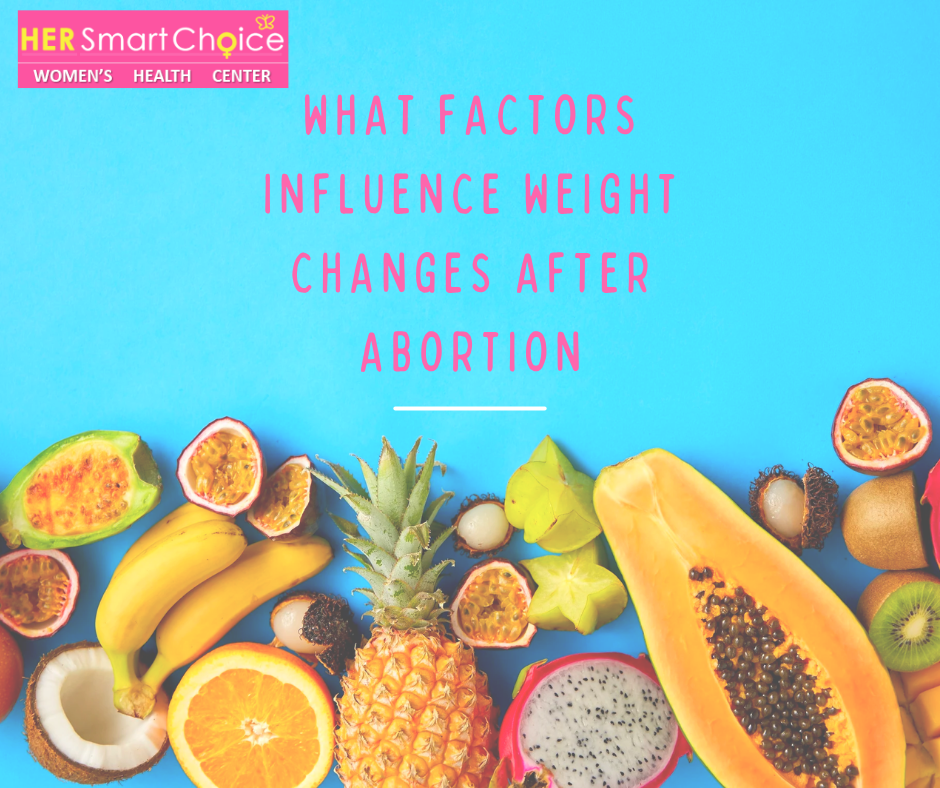Do You Lose Weight After an Abortion? Understanding Post-Abortion Weight Changes and Health Effects

Many people wonder if an abortion leads to weight loss or lasting changes to their body weight. The straightforward answer is that abortion typically doesn’t result in sustained fat loss. This guide explains how immediate physiological events—like bleeding, uterine tissue expulsion, and fluid shifts—can cause minor, short-term weight fluctuations. It also clarifies why longer-term changes are usually influenced by behavior, hormonal stabilization, or emotional factors. You’ll learn about the biological reasons behind post-abortion weight changes, realistic timelines for when these shifts might occur, the roles of appetite and metabolism, and practical strategies for managing your weight and overall well-being during recovery.
Follow Us!
The guide also differentiates effects based on the procedure type (medical versus surgical), debunks common myths about abortion as a weight-loss method, and highlights clear warning signs that warrant medical attention. Throughout, we use current research and clinical insights to help you understand what’s normal and when to seek help. This medically informed, compassionate explanation empowers you to make informed decisions about your recovery and next steps after an abortion.
Does Abortion Cause Weight Loss? Exploring Immediate and Long-Term Effects
Abortion is not a procedure that reliably causes weight loss as an intended outcome. However, immediate physical changes following the procedure can lead to slight, temporary reductions on the scale. The primary mechanism isn’t fat loss; rather, bleeding, the expulsion of zuterine contents, and associated fluid shifts briefly reduce mass. Hormonal shifts away from pregnancy-related hormones also influence appetite and fluid balance. Understanding these mechanisms is practical because most individuals experience transient changes that resolve as hormones and hydration normalize over days to weeks. Recognizing this distinction between temporary fluid/tissue loss and true fat loss helps prevent misinterpretations and sets realistic recovery expectations.
What physiological changes occur after an abortion?
Physiological recovery after an abortion commonly involves bleeding, uterine cramping, and a decrease in pregnancy hormones like hCG, progesterone, and estrogen. These hormones play a role in fluid balance and appetite. These processes can lead to short-term weight differences because expelled tissue and blood reduce measurable mass, and shifts in fluid retention alter body water content. Additionally, inflammatory responses and localized swelling typically resolve over days, which can further temporarily affect scale readings. Understanding these basic mechanisms clarifies that immediate post-procedure weight changes usually reflect transient bodily adjustments rather than permanent fat loss.
How soon can weight changes appear after abortion?
Weight changes can become noticeable within the first 24 to 72 hours after the procedure, coinciding with bleeding and uterine evacuation, when fluid shifts are most pronounced during the immediate recovery period. Over the subsequent 1–3 weeks, hormone levels typically settle, and appetite patterns often return to baseline, usually bringing weight back toward pre-pregnancy levels unless behavioral changes occur. By one to three months, most direct physiological effects have stabilized, and persistent weight change is more likely linked to diet, activity, or emotional health. Knowing these timelines helps individuals track normal recovery and identify when weight trends deviate from expected patterns.
Are weight changes after abortion temporary or permanent?
Most weight changes directly linked to the physical effects of abortion are temporary and resolve as bleeding ceases, hormones stabilize, and fluid balance normalizes over several weeks. Longer-term changes become more probable if an individual adopts different eating habits, reduces physical activity, or experiences prolonged emotional distress that alters behavior. Persistent or rapid weight loss or gain over weeks to months is not typical and should prompt an evaluation to identify treatable causes such as nutritional deficits, anemia, or mood disorders. Recognizing when temporary changes transition into persistent patterns supports timely care and recovery planning.
What Factors Influence Weight Changes After Abortion?

Several interacting factors determine whether someone notices weight changes after an abortion. Hormonal shifts, psychological responses, and procedural differences all play roles in appetite, fluid balance, and activity levels. Hormones like hCG, progesterone, and estrogen decrease rapidly after pregnancy ends, influencing nausea, appetite, and fluid retention. Emotional responses—such as relief, grief, stress, or anxiety—can alter eating behavior and activity, leading to weight effects independent of the procedure’s direct physiology. Finally, whether the abortion was medical or surgical influences symptom patterns like nausea or post-procedure bleeding, which in turn affect short-term weight fluctuations.
How do hormonal shifts impact weight after abortion?
Hormonal shifts after abortion include a decline in hCG and changes in progesterone and estrogen, which affect appetite, nausea, and fluid retention. These biological changes often lead to short-term appetite suppression or increases and transient shifts in water weight. As hormone levels normalize over days to weeks, appetite and fluid balance typically return to baseline, reducing the likelihood of long-term metabolic impact. Evidence linking abortion to sustained metabolic changes is limited, and most observed weight variation reflects reversible hormonal and fluid dynamics. Clinically, persistent appetite or weight changes beyond several weeks warrant further evaluation for other causes. For more understanding, visit what happens to your body after an abortion.
Can emotional and psychological factors affect weight loss or gain?
Emotional responses following an abortion—such as stress, anxiety, relief, or sadness—can significantly alter eating patterns and daily activity, potentially leading to either weight loss or gain depending on an individual’s coping style. For some, stress reduces appetite and food intake; for others, emotional eating increases caloric consumption and sedentary behavior, both of which can shift weight over time. Practical coping strategies, including structured meals, social support, and brief counseling, can help stabilize behavior and reduce the risk of persistent, unwanted weight change. Addressing emotional well-being early supports both mental health and physical recovery after the procedure.
Does the type of abortion procedure affect weight changes?
Medical abortion (using medication) often causes systemic side effects like nausea, vomiting, diarrhea, and fatigue, which may temporarily reduce appetite and food intake. Surgical abortion, on the other hand, tends to involve shorter systemic symptoms but can have variable bleeding and cramping patterns. These procedural differences influence recovery timelines and the likelihood of short-term weight or fluid changes, but neither procedure is a reliable method for weight loss. Comparing procedure-related symptom patterns helps clarify expected recovery experiences and assists individuals in planning nutrition and activity during the initial days and weeks after care.
| Factor | Characteristic | Typical Effect on Weight |
|---|---|---|
| Hormone changes | Rapid decline of hCG, progesterone, estrogen | Short-term appetite shifts and fluid changes |
| Psychological response | Stress, relief, grief, anxiety | Increased or decreased intake and activity |
| Procedure type | Medical vs surgical differences in systemic symptoms | Variable transient weight or intake changes |
This comparison illustrates how physiological, psychological, and procedural elements each contribute to short-term weight variability and why lasting change typically reflects behavioral patterns rather than the procedure itself.
How Does Abortion Affect Metabolism and Appetite?
Abortion generally does not cause lasting changes in basal metabolic rate. Short-term energy and appetite changes are more common and are driven by hormonal withdrawal, nausea, fatigue, and emotional factors. Metabolic rate remains stable for most individuals, but temporary reductions in activity and short-term appetite changes can alter energy balance and lead to modest weight shifts. Understanding appetite patterns and metabolic stability during recovery helps guide practical nutrition and activity choices that support healing and prevent unintended weight trends.
Does abortion slow down or speed up metabolism?
There is no substantial evidence suggesting that abortion causes a sustained acceleration or deceleration of basal metabolic rate in most individuals. Metabolic changes after the procedure are generally transient and secondary to altered activity or illness. Short-term fatigue or decreased activity may reduce daily energy expenditure, while systemic symptoms like fever or diarrhea could temporarily increase energy needs. If unusual or persistent metabolic symptoms arise—such as unexplained fatigue, extreme sensitivity to temperature, or ongoing weight change—evaluating for underlying conditions is advisable. For most, metabolism returns to baseline as recovery progresses.
What appetite changes are common after abortion?
Common appetite changes after an abortion include a short-term loss of appetite due to nausea or pain, an increased appetite related to stress or emotional eating, and fluctuating cravings as hormones normalize over days to weeks. Consuming small, frequent meals, focusing on protein and iron-rich choices, and maintaining consistent hydration can help manage appetite variability and provide essential nutrients for recovery. Monitoring these patterns over the first few weeks helps clarify whether appetite changes are temporary or part of a broader behavioral shift that might require intervention. Practical nutritional adjustments support healing and reduce the risk of unwanted weight change.
How do stress and recovery impact eating habits post-abortion?
Stress physiology elevates cortisol levels, which can increase cravings for calorie-dense foods. Additionally, sleep disruption and fatigue can reduce motivation for meal planning and physical activity. Together, these factors influence weight trajectories after an abortion. Recovery-related limitations on strenuous exercise may briefly reduce energy expenditure, making mindful nutrition even more critical for maintaining balance. Behavioral strategies—such as structured meal timing, having healthy snacks readily available, staying hydrated, and taking short walks—can help counteract stress-driven eating and support mood. Addressing these patterns early reduces the likelihood that short-term emotional reactions become lasting lifestyle changes.
| Biological Aspect | Attribute | Typical change | Clinical note |
|---|---|---|---|
| Appetite hormones | Ghrelin, leptin shifts | Short-term appetite variability | Monitor changes beyond 2–4 weeks |
| Energy expenditure | Activity levels | Temporary reduction with rest | Gradual activity return recommended |
| Hydration | Fluid balance | Short-term fluid loss or retention | Rehydration supports normalization |
This table summarizes how appetite, metabolism, and energy balance typically change after abortion and when clinical follow-up might be necessary.
What Are Common Myths About Weight Loss After Abortion?
Numerous myths surround abortion and weight, and dispelling these misconceptions helps prevent unsafe practices and unnecessary worry. The primary myth is that abortion leads to significant, lasting weight loss, which is inaccurate because most immediate changes reflect fluid or tissue loss rather than fat reduction. Another myth suggests that abortion inevitably causes long-term metabolic disruption; current evidence does not support this claim for most individuals. Differentiating myth from fact helps people focus on safe recovery strategies and seek appropriate care when concerns arise.
Is abortion a reliable method for weight loss?
Abortion is not a reliable or safe method for weight loss and should never be pursued for that purpose. Its medical indication is pregnancy termination, not body weight control. Any observed short-term change on the scale typically represents fluid loss or removed tissue, not sustainable fat loss. Attempting to use medical procedures for weight control is unsafe. Prioritizing health, psychological support, and evidence-based weight management strategies is essential for long-term well-being. Understanding that the procedure’s purpose and weight control goals are distinct supports safer decision-making.
Can abortion cause unhealthy or rapid weight loss?
Unhealthy or rapid weight loss after an abortion is not a normal expected outcome and may indicate complications, severe systemic symptoms, or mental health crises that require prompt evaluation. Red flags include severe vomiting that prevents intake, signs of infection, or a marked inability to eat over several days. These conditions can lead to dehydration or nutritional deficits. If rapid weight loss occurs, contacting a healthcare provider for assessment, rehydration, and nutrition support is appropriate. Early intervention can prevent escalation and support safe recovery.
How to differentiate normal weight changes from health concerns?
To distinguish normal recovery-related weight changes from concerning loss or gain, consider the rate and associated symptoms. Slow, minor changes with improving energy levels are typical, whereas rapid changes (over 5% of body weight within weeks) or symptoms like fainting, fever, or severe dizziness are cause for concern. Tracking weight, food intake, hydration, and energy levels provides objective data for clinicians during follow-up. When in doubt, an early assessment with simple lab tests and a nutrition evaluation can clarify causes and guide targeted care. Using clear criteria can reduce anxiety and ensure timely treatment when needed.
How Can You Manage Your Weight Healthily After an Abortion?
Managing weight after an abortion involves supporting recovery with adequate nutrition, hydration, gradual activity, and emotional support, rather than aggressive weight control. Balanced eating that prioritizes protein, iron, and fluids aids tissue healing and replenishes losses from bleeding. Gradually returning to gentle activity, such as walking and light movement, promotes circulation and mood, while delaying strenuous exercise until cleared by a healthcare provider helps prevent complications. Monitoring symptoms and consulting a clinician when abnormal signs appear ensures safe, individualized care.
This numbered list outlines practical, evidence-aligned steps to support healthy weight and recovery after an abortion:
- Prioritize hydration: Drink fluids regularly to restore balance and support recovery.
- Choose nutrient-dense foods: Opt for protein, iron-rich foods, and whole grains to replace losses.
- Eat small, regular meals: Use small portions if appetite is low to maintain energy and nutrient intake.
- Return to activity gradually: Begin with light walking and increase intensity as symptoms allow.
- Seek emotional support: Utilize counseling or peer support to manage stress-related eating.
These strategies help stabilize weight by addressing the most common drivers of post-abortion change and support both physical healing and emotional well-being.
For personalized post-abortion recovery plans that include medically reviewed nutrition and activity guidance, Her Smart Choice Women’s Health and Abortion Clinic in Los Angeles offers follow-up consultations to tailor recommendations to individual needs and recovery progress. Engaging clinical support can ensure that nutrition, hydration, and gradual exercise plans align with medical recovery and personal health goals.
What diet and nutrition tips support recovery and weight balance?
During immediate recovery, focus on balanced meals rich in protein, iron, and vitamin C to support tissue repair and replenish iron lost through bleeding. Choose easily digestible options if experiencing nausea. Small, frequent meals can help maintain energy when appetite is reduced, and snacks like yogurt, smoothies, or nut butter on whole-grain toast provide calories and nutrients without overwhelming the stomach. Rehydration with water and electrolyte-containing fluids aids in normalizing weight affected by fluid shifts. If bleeding was heavy or fatigue persists, a clinician can assess for anemia and recommend targeted supplementation.
How important is physical activity during post-abortion recovery?
Physical activity supports circulation, mood, and a gradual return to baseline fitness. However, timing is crucial: immediate rest followed by light walking within the first few days is usually safe, while more vigorous exercise should be postponed until bleeding lessens and pain subsides. Progression from rest to light activity to normal exercise typically occurs over one to two weeks, depending on the procedure and individual recovery. It’s important to listen to your body—pausing for increased pain, dizziness, or heavy bleeding—and clinicians can advise when exercise clearance is appropriate. A staged approach balances healing with the benefits of movement.
When should you consult a healthcare provider about weight concerns?
Consult a healthcare provider if you experience rapid weight loss or gain over a short period, an inability to eat or drink, persistent fatigue or dizziness, or any symptoms that interfere with daily functioning. These signs may indicate dehydration, anemia, infection, or mental health concerns. A clinical evaluation can include a medical history, physical examination, basic lab tests, and referrals to nutrition or mental health services as needed to identify treatable causes and plan recovery. Early assessment prevents complications and supports individualized strategies for restoring healthy weight and well-being. If you have concerns, scheduling a follow-up visit can provide reassurance and targeted care.
| Symptom | Possible cause | Recommended action |
|---|---|---|
| Rapid weight loss (>5% over weeks) | Severe reduced intake, dehydration, illness | Contact provider for evaluation and labs |
| Persistent fatigue and dizziness | Anemia or dehydration | Request CBC and rehydration plan |
| Inability to eat or vomiting | Gastrointestinal side effects or severe nausea | Seek urgent care or clinic follow-up |
This table offers a quick reference for common concerning symptoms and the practical next steps for obtaining evaluation and treatment as needed.
Are There Emotional or Psychological Effects That Influence Weight After Abortion?

Emotional and psychological responses to abortion—such as relief, grief, guilt, or stress—can alter eating patterns, sleep, and activity levels, which in turn affect weight and recovery. These effects manifest through behavioral shifts and stress-related hormones that influence appetite and cravings. Addressing emotional needs with counseling, peer support, and structured coping strategies reduces the likelihood that emotional responses become persistent drivers of unhealthy weight change. Integrating mental health support into recovery plans enhances overall well-being and weight stability.
How does stress or anxiety affect weight fluctuations?
Stress and anxiety activate physiological pathways, including elevated cortisol levels, which can increase cravings for high-calorie foods or suppress appetite in some individuals, leading to variable weight outcomes. Behaviorally, stress can cause sleep disruption and reduced activity, further altering energy balance and food choices. Simple self-care measures—such as maintaining regular sleep schedules, taking short walks, and practicing mindful eating—can help regulate stress responses and stabilize appetite. When stress is intense or prolonged, professional counseling can offer targeted strategies for managing emotion-driven eating.
What support resources help manage emotional eating or weight changes?
Support options include individual counseling, peer support groups, nutrition counseling, and online resources that focus on coping skills, structured eating routines, and behavioral strategies for managing cravings and emotional triggers. Nutrition counseling can provide meal plans and practical tips for balancing recovery needs with appetite changes, while therapy addresses underlying emotional drivers. Local clinics and community services often offer referrals; connecting with supportive services early can improve outcomes and reduce the risk of prolonged unhealthy eating patterns. Seeking help when struggling supports both mental and physical recovery.
Can counseling improve post-abortion weight management?
Counseling, including brief cognitive-behavioral strategies, can effectively address triggers for emotional eating, promote structured habits, and support gradual behavior change that stabilizes weight after an abortion. Evidence supports counseling for improving coping skills and reducing maladaptive eating behaviors, especially when integrated with nutrition advice. Referral to mental health services or integrated care pathways can assist individuals experiencing persistent stress, depression, or anxiety that affects their appetite and activity. Timely counseling complements medical follow-up and supports holistic recovery.
When to Seek Medical Advice About Weight Changes After Abortion?
You should seek medical advice if weight change is rapid, accompanied by systemic symptoms, or if it interferes with daily functioning, as these patterns may indicate treatable complications. Clinicians evaluate post-abortion weight concerns through a focused history, physical examination, and targeted lab tests, such as a complete blood count to check for anemia or metabolic panels for electrolyte disturbances. Treatments range from rehydration and nutrition plans to anemia treatment and mental health interventions, all tailored to the underlying cause. Knowing the red flags and typical evaluation steps ensures timely care and safer recovery.
This bulleted list highlights red-flag symptoms that require prompt medical attention:
- Rapid unexplained weight loss or gain: Significant change over weeks that is not improving.
- Severe or persistent inability to eat or drink: Poses a risk of dehydration and malnutrition.
- Marked fatigue, fainting, or dizziness: May indicate anemia or hemodynamic compromise.
- Fever, severe pain, or heavy bleeding: Signs of infection or other complications requiring urgent care.
What symptoms indicate abnormal weight loss or gain?
Abnormal patterns include losing more than 5% of body weight within a few weeks without intentional dieting, a persistent inability to maintain adequate food intake, or weight gain accompanied by swelling, severe fatigue, or other systemic signs. Associated symptoms such as fever, severe abdominal pain, fainting, or persistent vomiting increase the urgency and suggest complications like infection or significant dehydration. Recognizing these symptom clusters helps determine whether urgent clinical evaluation or routine follow-up is most appropriate. Early detection of an abnormal pattern enables targeted treatment and prevents deterioration.
How do doctors evaluate post-abortion weight concerns?
Clinicians evaluate weight concerns by taking a detailed history of the timeline, associated symptoms, dietary intake, and emotional state, followed by a physical examination and targeted lab tests. These may include a complete blood count to check for anemia, metabolic panels to assess electrolytes, and pregnancy tests if indicated. Providers also screen for mental health conditions and may refer to nutrition services for tailored meal planning or to counseling for emotional support. The evaluation progresses from basic stabilization (rehydration, symptom control) to diagnostic testing and referrals as needed to efficiently address the underlying cause.
What treatments are available for weight-related complications?
Treatment depends on the identified cause and may include oral or intravenous rehydration for dehydration, iron supplementation and dietary modifications for anemia, antiemetics for severe nausea that prevents intake, and mental health interventions for disordered eating or mood disorders. Nutrition counseling provides individualized meal plans and practical strategies to restore weight safely, and follow-up monitoring ensures improvement over weeks. Most interventions are straightforward, effective, and focused on restoring balance and energy while addressing any procedural complications.
This article has been medically reviewed and is presented with compassionate care principles by Her Smart Choice Women’s Health and Abortion Clinic in Los Angeles. If you have concerns about weight changes or recovery after an abortion, please seek professional evaluation and personalized follow-up care.
Frequently Asked Questions
Emotional effects following an abortion can significantly influence weight management. Feelings such as relief, grief, or anxiety may lead to changes in eating habits and physical activity levels. For some individuals, stress can suppress appetite, while for others, it may trigger emotional eating, leading to weight gain. Addressing these emotional responses through counseling or support groups can help stabilize eating patterns and promote healthier weight management during recovery.
To monitor weight changes effectively after an abortion, keep a daily log of your weight, dietary intake, and any associated symptoms such as fatigue or emotional fluctuations. Tracking these factors can help identify patterns and distinguish between normal recovery-related changes and concerning trends. Regular check-ins with a healthcare provider can also provide guidance and support, ensuring that any significant weight changes are addressed promptly and appropriately.
Yes, specific dietary recommendations can support recovery after an abortion. Focus on consuming nutrient-dense foods rich in protein, iron, and vitamins to aid tissue healing and replenish losses from bleeding. Small, frequent meals can help maintain energy levels, especially if appetite is low. Hydration is also crucial, so drink plenty of fluids, including water and electrolyte-rich beverages, to support recovery and normalize weight influenced by fluid shifts.
Physical activity plays a vital role in post-abortion recovery by promoting circulation, improving mood, and aiding in the gradual return to baseline fitness. Light activities, such as walking, can be beneficial shortly after the procedure, while more vigorous exercise should be postponed until bleeding subsides and pain decreases. Listening to your body and progressing activity levels based on comfort and recovery is essential for a balanced approach to healing.
Seek professional help if you experience rapid weight changes (more than 5% of body weight) within a few weeks, persistent fatigue, dizziness, or an inability to eat or drink. These symptoms may indicate complications such as dehydration, anemia, or mental health issues that require evaluation. Early intervention can help address underlying causes and support a healthier recovery process, ensuring that you receive the appropriate care and guidance.
Counseling can be highly beneficial for managing emotional eating after an abortion. It provides a safe space to explore feelings and develop coping strategies for stress and anxiety that may influence eating behaviors. Cognitive-behavioral techniques can help individuals identify triggers for emotional eating and establish healthier habits. Integrating counseling with nutritional guidance can enhance recovery and promote a balanced approach to weight management during this sensitive time.
Conclusion
Understanding the nuances of weight changes after an abortion is crucial for managing recovery and well-being. By recognizing the temporary nature of physiological shifts and the importance of emotional support, individuals can set realistic expectations and make informed choices. Prioritizing nutrition, hydration, and gentle activity fosters a healthier recovery process. For personalized guidance tailored to your needs, consider reaching out to a healthcare provider today.
Follow Us!










